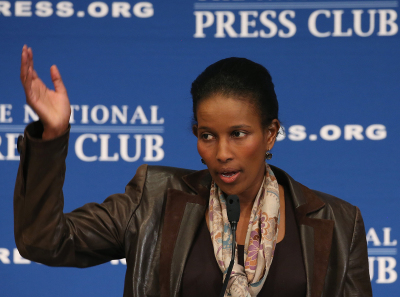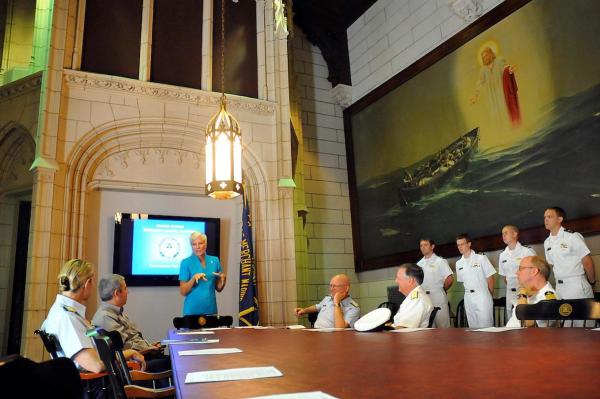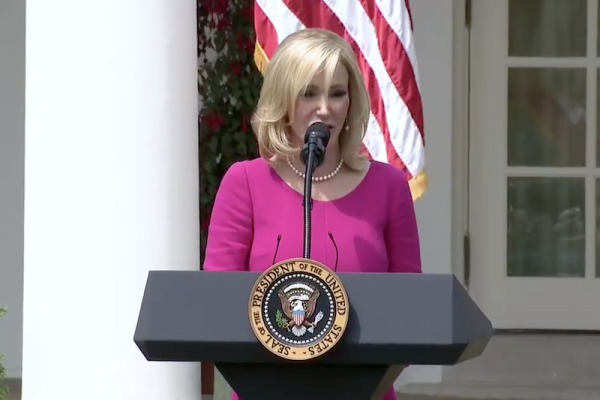How former atheist Ayaan Hirsi Ali found peace in Christ

When you hear the term New Atheism, you may think of Christopher Hitchens and Richard Dawkins. But you are probably less familiar with Ayaan Hirsi Ali, who stood right by their side in strongly denouncing Christianity. This influential scholar and intellectual was essentially the fifth most prominent new atheist behind Hitchens, Dawkins, Sam Harris and Daniel Dennett.
Hirsi Ali was raised as a Muslim in Somalia. But she eventually began to oppose forced marriage, honor killing, child marriage, and female genital mutilation. Ayaan renounced her Islamic faith and became an atheist. She moved to the Netherlands at the age of 23 and rose to become a top-ranking politician.
Hirsi Ali's books, Infidel: My Life (2007) and Heretic: Why Islam Needs a Reformation Now (2015) became bestsellers. But rejecting Islam and embracing atheism still left her soul feeling empty, in spite of the fact that "Hirsi Ali was a central figure in New Atheism since its beginnings."
Last year, Hirsi Ali announced that she had become a Christian, which of course shocked her atheist friends. But it wasn't intellectual arguments that ultimately convinced Hirsi Ali to embrace Christianity. It was what happened when she humbled herself before the God of the universe. Hirsi Ali prayed fervently and cried out to the Lord for help.
In a friendly discussion & debate with Richard Dawkins a few months ago, Ayaan explained her journey: "I had a personal crisis ... I lived for about a decade with intense depression and anxiety, self-loathing. I hit rock bottom. I went to a place where I actually didn't want to live anymore, but I wasn't brave enough to take my own life. I was self-medicating. Over a long period of time, I saw psychiatrists and other doctors. I was trying to understand my condition and I was trying to treat it with the help of pure evidence-based science."
Hirsi Ali continued, "I saw one therapist who said, 'Perhaps you have something else.' She described it as 'spiritual bankruptcy,' and that resonated with me. And having reached a place where I had absolutely nothing to lose, I prayed, and I prayed desperately. And for me, that was a turning point. And what happened after that is a miracle in its own right."
Hirsi Ali learned the painful lesson that Islam provides no inner peace, but only brutality and fear, especially for women and young girls. Likewise, she discovered firsthand that atheism also leaves your soul feeling empty. Ayaan was terribly unfulfilled, in spite of her close friendships with Hitchens, Dawkins, Harris and Dennett. Atheism simply did not satisfy the deep longings within her, and even brought her to the brink of suicide.
Dawkins finds it next to impossible to see where Hirsi Ali is coming from today. She has tried to help him understand that there are "different planes of perception." She compares it to her inability to perceive the significance of Jackson Pollock's abstract impressionist art. Where one person perceives brilliance, another is left perplexed as to its beauty.
Hirsi Ali said, "When I was an atheist, I was going all over the United States and Europe, mocking Christians, making fun of them, making fun of faith, as you're doing now dear Richard. I was walking with six to seven men at any given time, protecting me, armed, from things that I said that were offensive to Muslims. Christians were writing me letters saying, 'We're going to pray for you. You are misguided.' And I think that alone defines for me the distinction between mainstream Christianity and mainstream Islam."
Hirsi Ali is learning that not only does Christ bring peace to your soul when you accept Him as Savior, but Jesus actually turns His followers into peace-loving people who pray for their enemies, rather than taking up arms against them.
Dawkins asked Hirsi Ali, "You don't believe Jesus rose from the dead, surely?" She said, "I choose to believe that Jesus rose from the dead." Every follower of Christ believes in the Lord's death on the cross for our sins, as well as His resurrection from the dead. Hirsi Ali then said, "It has to go back to, 'Is there something or is there nothing?'" Dawkins obviously believes there is nothing, which is precisely what his ideology provides for those who choose atheism. Hirsi Ali admitted, "For years I agreed with you that there is nothing."
Dawkins chose to blurt out this sarcastic and blasphemous comment about Christianity: "The idea that God couldn't think of a better way to forgive the sins of humanity than to have His Son crucified. That is a disgusting idea."
How can Dawkins remain so blind to the truth? He is hardening his heart and deliberating sinning against the Holy Spirit by continually rejecting God's plan of salvation. Sadly, Dawkins may have already reached his personal point of no return. Many wondered the same thing about Hitchens, which I addressed in a CP op-ed earlier this year: "Christopher Hitchens Now Realizes God is Great."
How are we to understand these different planes of perception? The Apostle Paul explained it this way: "The man without the (Holy) Spirit does not accept the things that come from the Spirit of God, for they are foolishness to him, and he cannot understand them" (1 Corinthians 2:14). "The message of the cross is foolishness to those who are perishing, but to us who are being saved it is the power of God" (1 Corinthians 1:18).
Richard Dawkins remains on a much lower plane of perception than Hirsi Ali. The only way to gain what I refer to as "sanctified reason" is to do what Hirsi Ali did when she humbled herself before Almighty God in prayer. It requires humility to "repent and believe the good news" (Mark 1:15). When Dawkins referred to Christ's crucifixion as a "disgusting idea," Hirsi Ali gently responded, "God gave us free will."
By the grace of God, Hirsi Ali was "rescued from the dominion of darkness and brought into the kingdom of the Son, He (the Father) loves, in whom we have redemption, the forgiveness of sins" (Colossians 1:13-14). And there is no greater peace than having a relationship with your Creator and knowing that your sins are forgiven and washed away by the blood of Jesus Christ who "died for sins once for all, the righteous for the unrighteous, to bring you to God" (1 Peter 3:18).
Dan Delzell is the pastor of Redeemer Lutheran Church in Papillion, Nebraska.





















